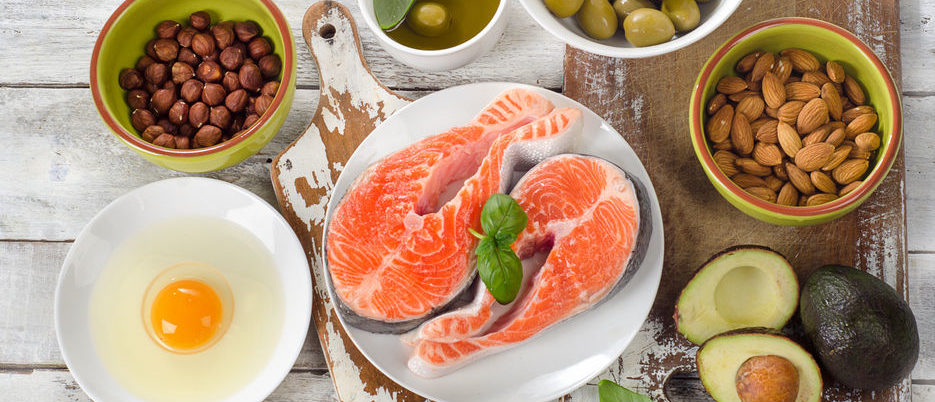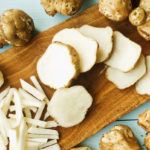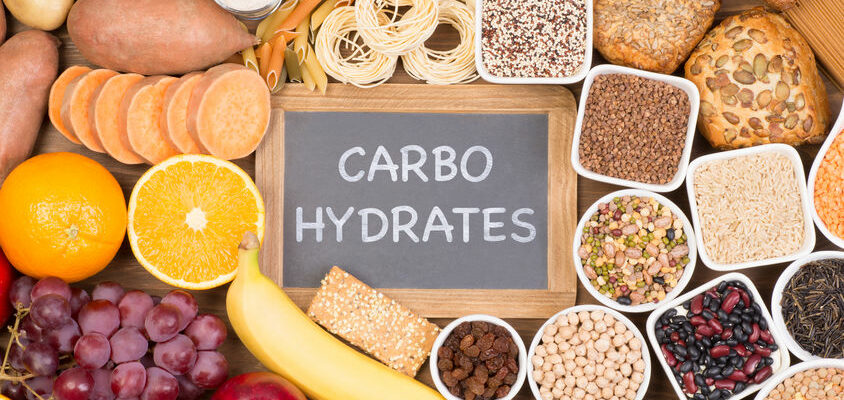
Anxiety is a normal human emotion, however, in extreme cases, it can become a clinical disorder characterized by uncontrollable feelings of nervousness, fear, apprehension, and worry. Although symptoms can vary from person to person, the ripple effect of anxiety can be felt across the globe. In the United States, anxiety affects more than 40 million adults every year.
In general, anxiety is manageable, and physicians recommend using exercise, therapy, and some medications to treat it. Furthermore, lifestyle changes are effective when dealing with milder cases. However, if anxiety symptoms last for longer than 6 months, an individual may have a more serious anxiety condition such as General Anxiety Disorder, Panic Disorder, Social Anxiety Disorder, or others.
Foods for managing Anxiety
Research has shown that these foods can help mitigate the symptoms of anxiety.
- Probiotic foods such as kefir, sauerkraut, and pickles
- Fatty fish including salmon, sardines, trout, and herring
- Pumpkin Seeds
- Eggs
- Brazil Nuts
- Dark Chocolate
- Chamomile
- Green tea
How can your diet help?
Diet can help or hurt anxiety treatments since a person’s mood can shift with food hormones and the reactions they produce in the body. For instance, while the immediate effect of consuming alcohol can feel calming, the final result may induce mood swings and trouble sleeping. Similarly, caffeine may provide an instant buzz and temporary euphoria, yet it can also bring about jitters and irritability. Following a balanced diet, eating regular meals, avoiding caffeine and alcohol, and staying hydrated are all significant dietary factors that affect anxiety.
What else can you do? Nutrients that help reduce Anxiety
A balanced diet filled with plenty of protein, fruits, and vegetables is central to keeping anxiety at bay. Regardless, some foods show more promise for managing anxiety than others. Studies have shown that selenium, which has anti-inflammatory properties, may provide relief to people with mood disorders such as anxiety. The correct balance of fatty acids in the body, including omega-3s and omega-6s, has also been shown to affect a person’s mood.
According to a recent survey, magnesium-rich dark chocolate has been linked to the decreased levels of depression and anxiety in adults. For some time now, studies have shown that magnesium can help manage stress and anxiety. While it requires further study, more and more researchers are connecting a Vitamin D deficiency to mood disorders such as anxiety and depression. This nutrient has proved especially useful for individuals suffering from Seasonal Disaffected Disorder, as well as improving the moods of pregnant women and the elderly.
Quick food tips for dealing with Anxiety
When anxiety continues for extended periods, it may be advisable to adjust your diet to help keep it under control. Fatty fish, probiotic foods, some seeds and nuts, eggs, green and herbal teas, and dark chocolate all have track records as foods for managing anxiety. These foods paired with a balanced diet composed of plenty of fruits, vegetables, protein, and fluids have proven to be a viable method for mitigating mood disorders. Additionally, minimizing the consumption of caffeine and alcohol can further regulate a person’s mood and keep them from experiencing excessive feelings of anxiety. If symptoms persist, visit your physician to see if medication or therapy could provide long-term anxiety relief.
For more info, check our Youtube!
References
Felman, Adam. “Anxiety: Symptoms, Types, Causes, Prevention, and Treatment.” Medical News Today, MediLexicon International, 2020, www.medicalnewstoday.com/articles/323454.
“Facts & Statistics.” Adaa.org, Anxiety and Depression Association of America, adaa.org/about-adaa/press-room/facts-statistics.
S;, Spedding. “Vitamin D and Depression: a Systematic Review and Meta-Analysis Comparing Studies with and without Biological Flaws.” Nutrients, U.S. National Library of Medicine, 2014, pubmed.ncbi.nlm.nih.gov/24732019/.
Sawchuk, Craig N. “Find out How Food and Anxiety Are Linked.” Mayoclinic.org, Mayo Foundation for Medical Education and Research, 24 May 2017, www.mayoclinic.org/diseases-conditions/generalized-anxiety-disorder/expert-answers/coping-with-anxiety/faq-20057987.
Banikazemi, Zarrin, et al. “Selenium Intake Is Related to Beck’s Depression Score.” Iranian Red Crescent Medical Journal, Kowsar, 28 Mar. 2016, www.ncbi.nlm.nih.gov/pmc/articles/PMC4884624/.
Fernandes, Maria Fernanda, et al. “The Relationship between Fatty Acids and Different Depression-Related Brain Regions, and Their Potential Role as Biomarkers of Response to Antidepressants.” Nutrients, MDPI, 17 Mar. 2017, www.ncbi.nlm.nih.gov/pmc/articles/PMC5372961/.
Jackson, Sarah E., et al. “Is There a Relationship between Chocolate Consumption and Symptoms of Depression? A Cross‐Sectional Survey of 13,626 US Adults.” Wiley Online Library, John Wiley & Sons, Ltd, 29 July 2019, onlinelibrary.wiley.com/doi/abs/10.1002/da.22950.
Boyle, Neil Bernard, et al. “The Effects of Magnesium Supplementation on Subjective Anxiety and Stress-A Systematic Review.” Nutrients, MDPI, 26 Apr. 2017, www.ncbi.nlm.nih.gov/pmc/articles/PMC5452159/.
Mao, JJ, et al. “Long-Term Chamomile (Matricaria Chamomilla L.) Treatment for Generalized Anxiety Disorder: A Randomized Clinical Trial.” Phytomedicine : International Journal of Phytotherapy and Phytopharmacology, U.S. National Library of Medicine, 2016, pubmed.ncbi.nlm.nih.gov/27912875/.
Ashuni Pérez is a writer in the culinary, as well as health and wellness industries. With a background in teaching and digital media, she loves to learn and help others discover more about their food, where it comes from, and how best to prepare it. A foodie through and through, she is always searching for new recipes and the freshest ingredients.











[…] alcohol consumption is weight loss. Also, another benefit is improved mood with fewer symptoms of anxiety, stress, and depression. Additionally, research shows that reducing alcohol consumption can help […]